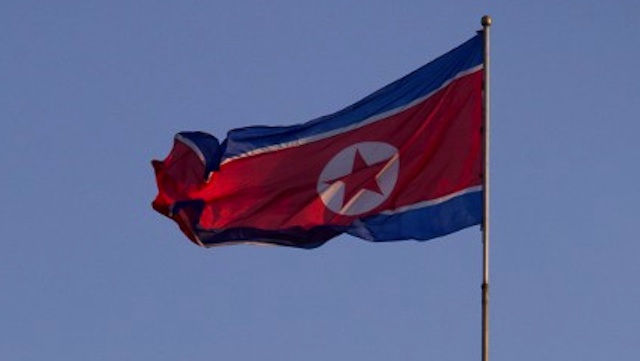SUMMARY
This is AI generated summarization, which may have errors. For context, always refer to the full article.

SEOUL, South Korea – North Korea said it may delay a much-criticized long-range rocket launch originally scheduled for as early as Monday, December 10, but gave no hint of the reasons.
Scientists and technicians were “now seriously examining the issue of readjusting the launching time of the satellite for some reasons”, the Korean Committee of Space Technology said.
Analysts said technical problems or snow, rather than overseas political pressure, could be behind the delay in what the North calls a satellite launch.
One said the country’s new leader may have been rushing the blast-off set between December 10 and 22 in an attempt to mark a key political anniversary.
A long-range launch in April, also purportedly to put a satellite into orbit, failed embarrassingly when the rocket blew up seconds after lift-off.
The English-language version of the space committee’s statement, carried on the official news agency, said preparations for the latest launch had been in “the final stage”.
The nuclear-armed nation insists its three-stage rocket will blast off from a west coast site to launch a satellite for peaceful scientific purposes.
The United States, and allies South Korea and Japan, say Pyongyang plans a disguised ballistic missile test that violates UN resolutions triggered by its two nuclear tests in 2006 and 2009.
Japan Friday ordered its military to shoot down the rocket if it threatens the nation’s territory. Washington put anti-missile destroyers into position, ramping up pressure on Pyongyang.
The USS Benfold and the USS Fitzgerald have been sent to the area to “monitor any potential missile launch by North Korea and to reassure regional allies should a launch occur”, a US Navy official told AFP in Washington.
A US think-tank, the US-Korea Institute at Johns Hopkins University, said Friday that preparations may have been delayed by heavy snow.
“Sunday’s announcement was only made by scientific authorities, meaning the most likely reason is either technical issues or weather conditions,” said Jang Yong-Seok from the Institute for Peace and Unification Studies at Seoul National University.
There had been “abnormal signs” indicating technical problems in launch preparations since Saturday afternoon, said South Korea’s Yonhap news agency, citing an unidentified senior Seoul official.
Pyongyang has apparently “rushed too fast” to time the launch to mark the first anniversary of the death of leader Kim Jong-Il on December 17, said Yang Moo-Jin of Seoul’s University of North Korean Studies.
“It showed how desperate and time-pressed the North was to showcase its scientific breakthrough to its people on the key anniversary and subsequently rally support for the new leader, Jong-Un,” Yang told AFP.
The young and inexperienced Jong-Un took over from his late father last December, the second father-to-son power transfer by the Kim dynasty that has ruled the isolated and impoverished state with an iron fist for some 60 years.
Analysts said the December 10-22 launch window was twice as long as the period set before the failed April launch.
They said this reflected the difficulties technicians may encounter in the harsh winter weather of the Korean peninsula.
Analysis of satellite imagery suggested preparations at the Sohae satellite launch station were proceeding “more slowly than previously reported”, the US-Korea Institute said.
Washington and Seoul have urged Pyongyang to scrap the launch while Tokyo has postponed talks originally planned this week with North Korea.
UN diplomats inside and outside the Security Council have reportedly started consultations behind the scenes on what action to take if Pyongyang goes ahead.
Japan, the United States and South Korea have agreed to demand the UN Security Council strengthen sanctions on North Korea to levels that match those on Iran, Japan’s Asahi Shimbun newspaper said.
That would include increasing the list of financial institutions, entities and individuals that are subject to asset freezes, it said. – Jung Ha-Won, Agence France-Presse
Add a comment
How does this make you feel?
There are no comments yet. Add your comment to start the conversation.